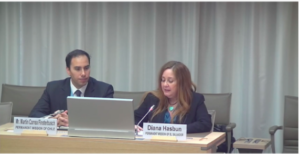Chile, El Salvador, Peru, Kenya, Azerbaijan, South Africa and Uganda are participating in a forward-looking study to inform a new economic development policy based on leveraging the human capital formation of developing nations through markets in patents (licensing). A first pilot-study consisting of surveys of inventors on cross-border licensing practices and prices and video-workshops with inventors and policy makers from these countries were reported on Nov 26. The event was organised by WTO with introduction by Deputy Director General Mr. Yi and moderated by Mr. Koopman, chief economist at WTO.
The next steps to inform a national and international policy discussion were presented, including an already started statistics framework study – a key to measure the impact of such a policy.
A key initiative is to create a LDC package with the least developed countries (47 in 2018), providing everything needed to being licensing of their patented technology to the world, leveraging their human capital formation. Some of these inventor-companies may have the potential to become “economic locomotives” for these countries, creating opportunities for their nations.
The Foreign Office of the Kingdom of Sweden funded the pilot and the statistics study.
A recording of the presentation and discussion as well at PPT and communications by four participating countries can be found here, introduction here and powerpoint here.
Sincerely,
Eskil Ullberg
Documents from presentation and full program:
– Introduction: text
– Web-cast presentation: watch recording here.
– Powerpoint: Presentation

